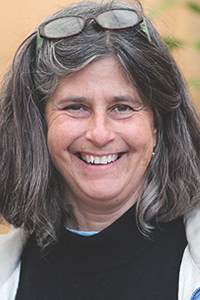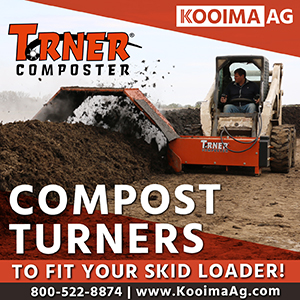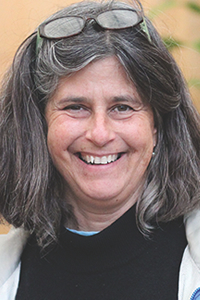
Sally Brown
It is time to decide if you’re ready to go all the way. It could feel so good. This conversation is about what you do in your kitchen, namely contaminants in food scraps. For municipalities or communities with food scrap diversion and composting, it is time to decide what the real goals of the programs should be: making high quality composts or getting as much out of landfills as possible. This could be one and the same thing but a lot of work remains to make that a reality instead of a dream.
This past year I attended a number of workshops put on by King County (WA) Solid Waste. We love recycling here in King County. We pride ourselves in being environmentally correct. One estimate put the recycling rate in Seattle at close to 60%. We love recycling so much that we put as much stuff as possible into the different bins — whether they belong there or not. That fondness in recycling has resulted in serious quality problems for compost. We know that pizza boxes are okay to compost, so why not put in any and all food soiled packaging that resembles paper?
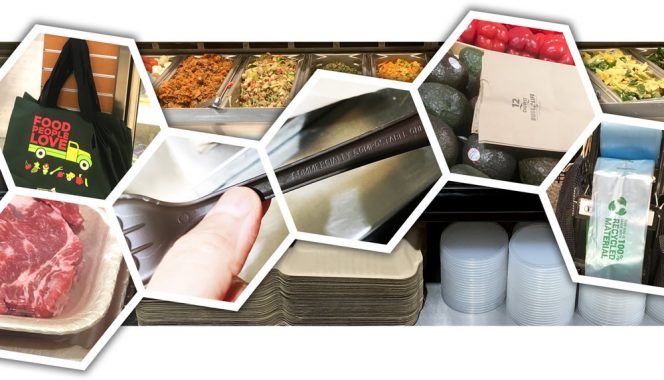
Reusable bags, compostable meat trays with non-compostable soakers and wrap, single-use utensils that are compostable at commercial facilities exclusively, paper bags and recycled plastic bags … A supermarket attempting to be green can provide a potentially confusing mix of materials to the average consumer.
King County hired a consultant to survey households on food scrap recovery. They identified 14 households representing different geographic and demographic groups within the County. Each individual was interviewed in person, had their bins picked over, and completed a homework assignment. The big result was people consistently erred on the side of saving the planet by putting questionable items into the organics bin rather than the trash. They knew that trash was bad and composting is good. People viewed putting stuff in the composting pile as something that they could do to make a difference, as in “I have a gas-guzzling car. If I can do this piece…at least I’m helping out in the ways I can.”
Subtleties like wax-coated paper versus just paper were lost on the survey participants — as they are often lost on me. For example, “Well we know about the pizza box, and how that goes in (the compost) so why wouldn’t the donut box (store bought with plastic film)? It’s paper and it’s empty.” Or, “That waxy paper on pears…it’s not too waxy. I guess it can be composted. [I can tell] by that gut feeling. … Going off of the thought that if I were to leave it outside over time it would turn to dirt.”
Good Attitude, Contaminated Compost
The “wanting to make a difference” attitude is driving the King County composting program into the high contaminant zone and frustrating the county staff trying to do the right thing. So what is the right thing?
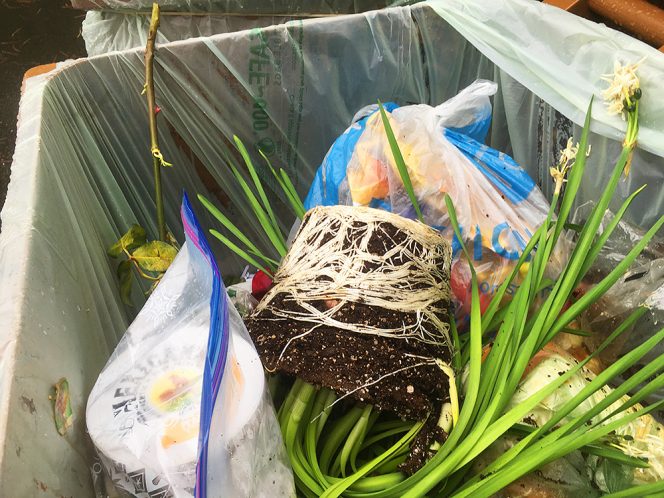
“Saving the planet” by putting questionable items into the organics bin rather than the trash leads to contamination.
Residential curbside programs in King County utilize a larger cart for commingled yard trimmings, food scraps and soiled paper. One option is to reduce what is allowable in the yard trimmings bin. Forget the pizza boxes and any type of soiled paper. Forget food packaging. Maybe take away meat and dairy. That would reduce the contaminants. It would also likely reduce participation rates and waste diversion rates. People who want to help might even get discouraged and disillusioned. Likely this approach would also improve compost quality.
The other option is the “go all the way.” That means all food packaging, product labels, and containers have to be compostable as well. At one of the King County meetings everyone talked about a fast food chain, Taco Time, with reverence. Taco Time has gone all the way — all food from the store comes in materials that do just fine in the yard trimmings/food scraps bin. Josh Marx from King County marveled at how there are no trash cans in those restaurants.
Contrast that with a trip to the supermarket. My meat comes in a brown foam tray that is compostable. But the pad underneath the meat that absorbs liquid and the plastic wrap on the package — that is a different story. At least I am pretty sure it is. If I go vegan, single use plastic wraps and packaging as well as waxed paper cover my purchases. The market has replaced the normal plastic produce bag with green stuff made from 100% recycled materials and put paper bags out as well.
But this partial solution, however well intentioned, will leave well-intentioned and unsure people (like me) on the edge. Very often that edge leads to contaminants in the organics bin. Having all food packaging, product labels, and containers be compostable is a step that hopefully is coming. Keeping it simple (the KISS) is critical if you really want to go all the way.
Sally Brown, BioCycle’s Senior Adviser and long-time Connections columnist, is a Research Professor in the College of the Environment at the University of Washington.


